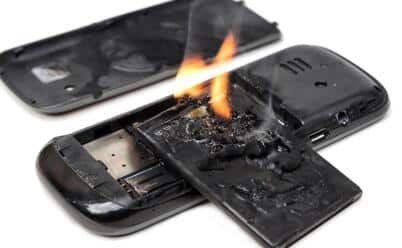Lithium Batteries in Military
Military energy is related to the combat effectiveness of the army and the overall situation of national security. Due to its unique technical advantages, lithium batteries are currently widely used in the military field and have become an indispensable source of energy in military operations. As a key energy storage technology, lithium battery energy storage technology has played an irreplaceable role in it.
In today’s rapid economic development, lithium batteries can be described as being used in all parts of our lives. It also shoulders the important responsibilities of national development and national defense armaments. In the context of information warfare, more and more digital weapons and equipment have emerged in modern warfare and have been widely used in the military. High-performance weapons and equipment require military energy storage equipment with strong reliability, good safety, good environmental adaptability, and high specific energy to meet the energy needs of its stable operation.
What is needed for military applications is lithium batteries with excellent performance, which is not a decisive factor in the price. In the field of national defense and military, lithium batteries cover:




Land (individual soldier system, army combat vehicle, military communication equipment, robot warrior)
Aviation (fighter, unmanned fighter)
Sea (submarine, underwater robot)
Aerospace (satellite, spacecraft) and many other arms.
Energy Storage for Military Bases
Plateau, border defense, and island troops are far from rear bases and have long energy supply lines. The development and utilization of renewable energy sources such as wind and solar energy has become an inevitable trend. The use of lithium battery energy storage can not only solve the problems of intermittent and poor stability of renewable energy power generation, but also has the functions of cutting peaks and filling valleys. It is a key technology to solve the energy security of remote military bases.


Field Power Supply
The square-cabin energy storage system using lithium batteries does not have the problems of high noise and obvious infrared characteristics of diesel generators, which significantly enhances the concealment and survival ability of electrical energy protection. However, for the field power supply environment, lithium-ion batteries have problems such as poor low-temperature performance. For example, at -40℃, the charge and discharge capacity of lithium-ion batteries is less than half of that at room temperature.
High-energy Weapon Power Supply
New types of high-energy weapons and equipment such as electromagnetic cannons, lasers, and high-power microwaves are becoming more and more widely used, and the output power of directional energy weapons is increasing. Lithium-ion batteries can be used as power supplies for high-energy weapons with excellent magnification charge and discharge capabilities. However, with the development trend of miniaturization of high-energy weapons, the volumetric power density of existing lithium batteries still needs to be further improved to meet the requirements of miniaturization and lightweight of vehicle and airborne weapons.


Unmanned Equipment Power Source
At present, the mainstream small and micro unmanned equipment uses lithium-ion batteries as its main power supply. However, the battery life of UAV powered by lithium-ion batteries is usually about half an hour, which is the biggest problem restricting the practical application of military unmanned equipment.
Individual Power Supply
With the accelerate development of the trend of information age, visualization and intelligence of individual equipment, the demand for electrical energy has increased rapidly. Lithium batteries are currently the main power supply for individual military equipment in various countries.
Equipment and logistics support, energy storage technology also serves combat support. Airborne, vehicle-based, and ship-based communication equipment mostly use lithium-ion batteries as power supplies; high-latitude countries such as the Netherlands and Sweden plan to equip their military with electric heating quilt suits, which have unmatched thermal insulation properties of traditional quilt suits. If a large-capacity power supply is used to power the command system and logistics support system, its concealment can be greatly improved.


Submarine
Among the submarines used by navies around the world, traditional lead-acid batteries occupy the mainstream position, but lead-acid batteries cannot make further technological breakthroughs and their performance is not enough. As a popular battery nowadays, lithium-ion batteries are safe and reliable. Some developed countries are seeking research and development of power systems such as lithium batteries for use in the submarine field.
Specific Requirements for Lithium Batteries in Military Equipment
High Safety Guarantee: during high-intensity shocks and strikes, lithium batteries should be safe and will not cause casualties. This requires the installation of high-quality protection boards for lithium batteries. The protection boards are mainly stable, reliable and safe protection of lithium batteries to ensure the normal and safe use of batteries or longer use. Other added unique technologies and functions are all floating clouds.
High Reliability: It is necessary to ensure that the lithium battery is effective and reliable when in use.
High Environmental Adaptability: ensure that it can be used normally under different climatic conditions, high-intensity electromagnetic environments, high or low pressure environments, high-radiation environments, and high-salt environments.
Above are the application of lithium batteries in the military and some simple instructions.
Prev Article: All Things You Need to Know about NTC Thermistors
Next Article: What You Need to Know about Lithium Batteries in UAV



Leave A Comment